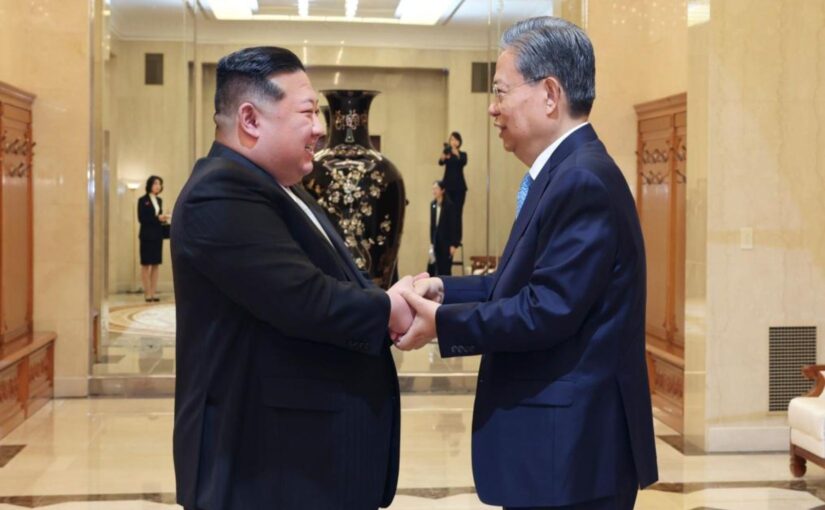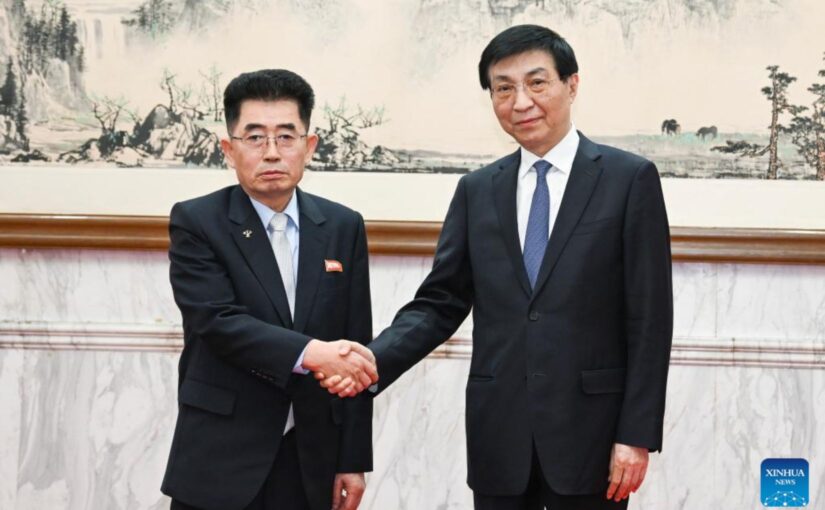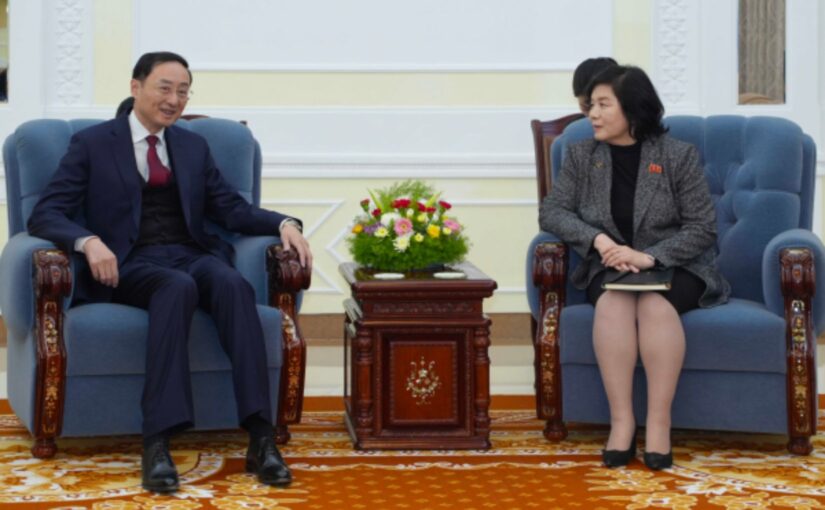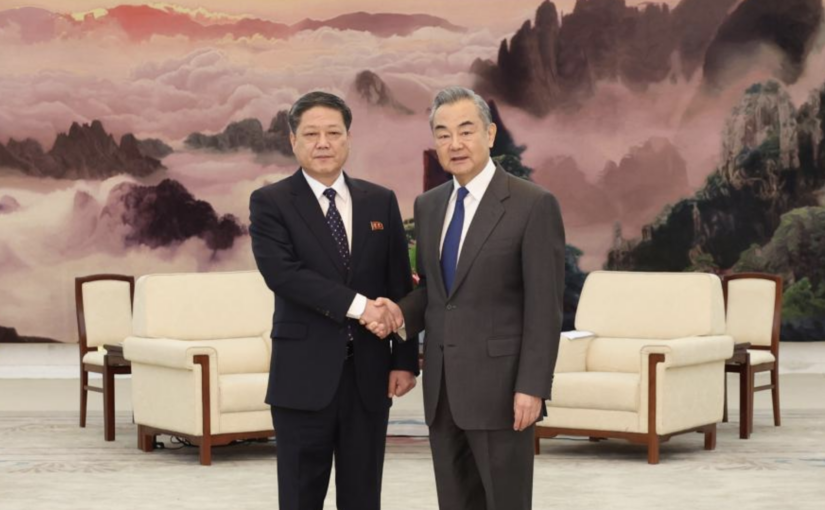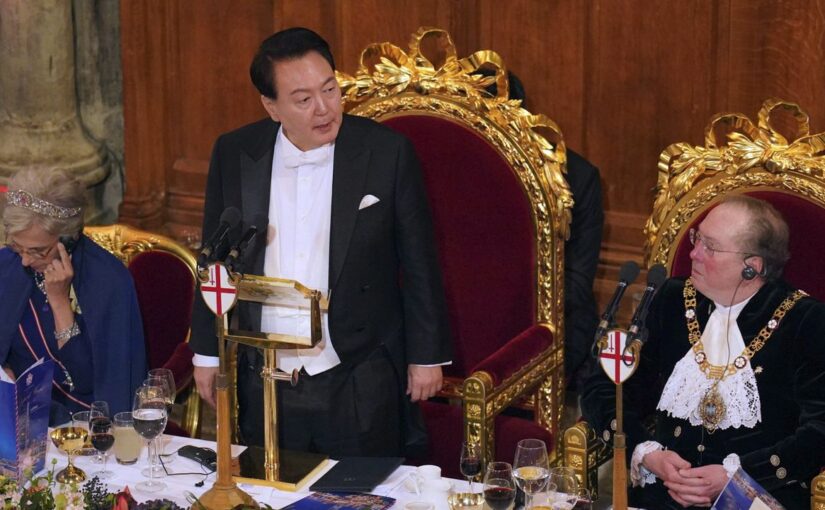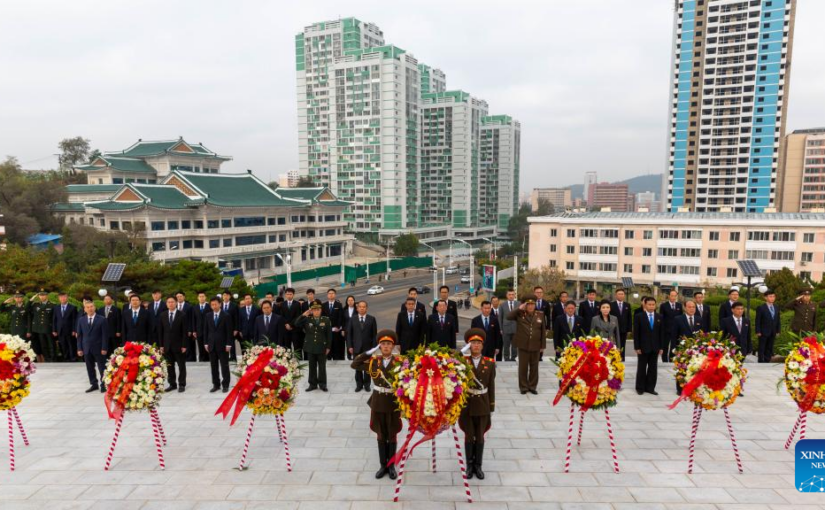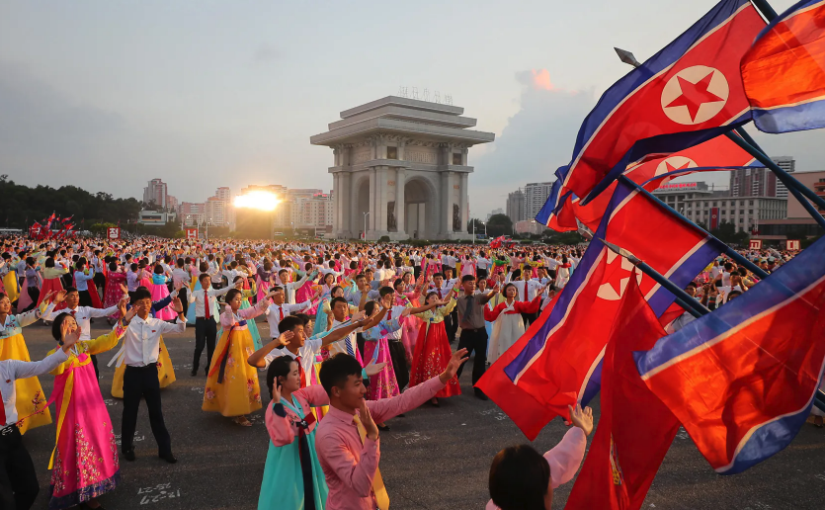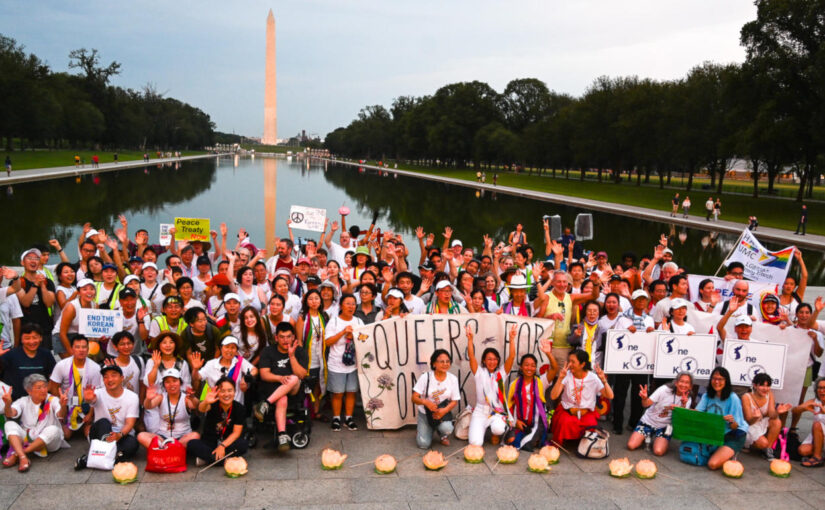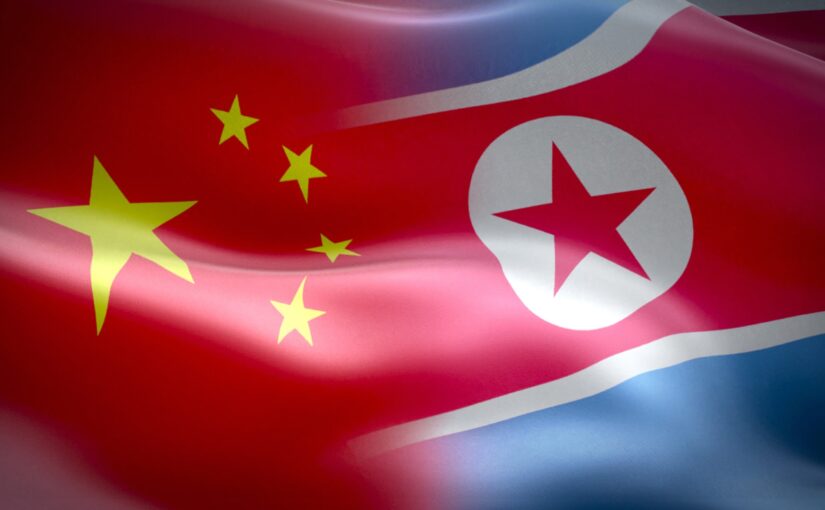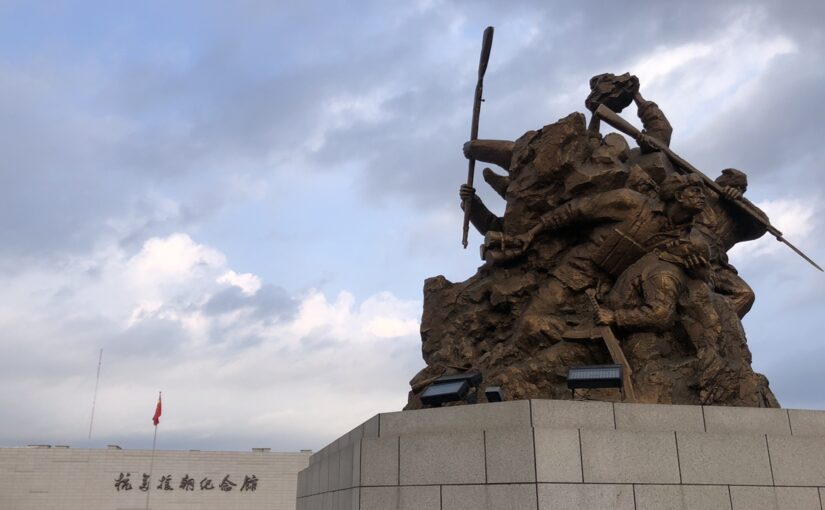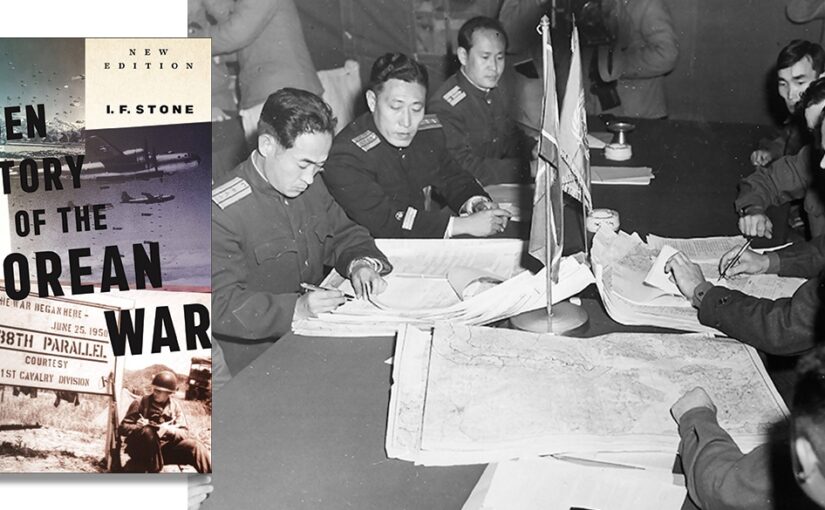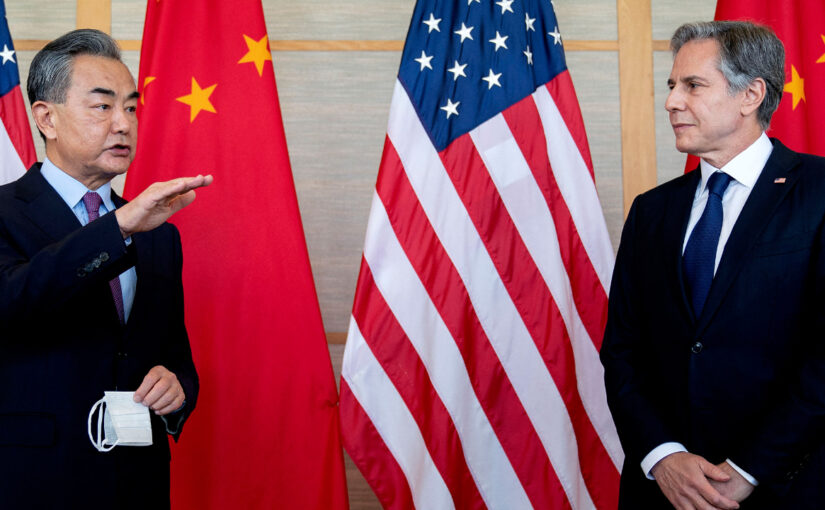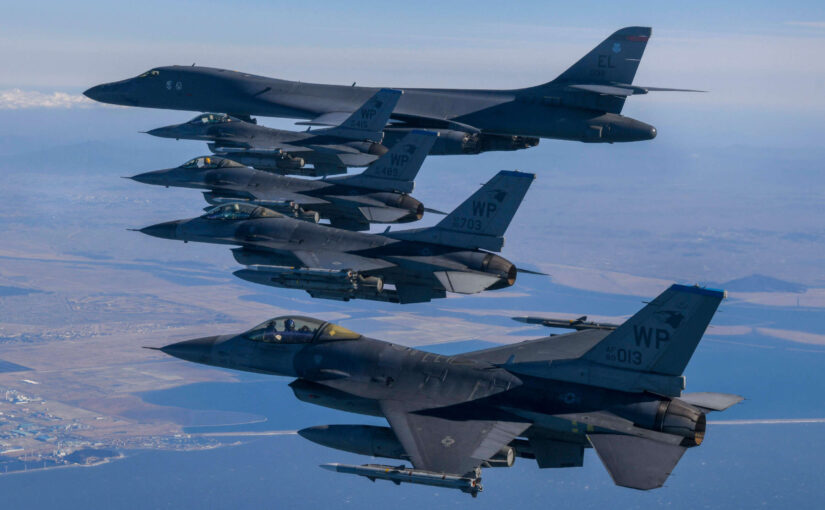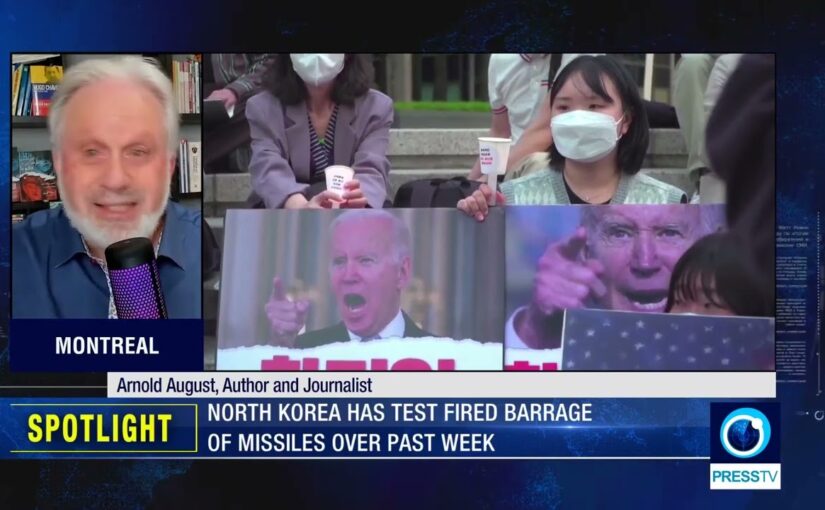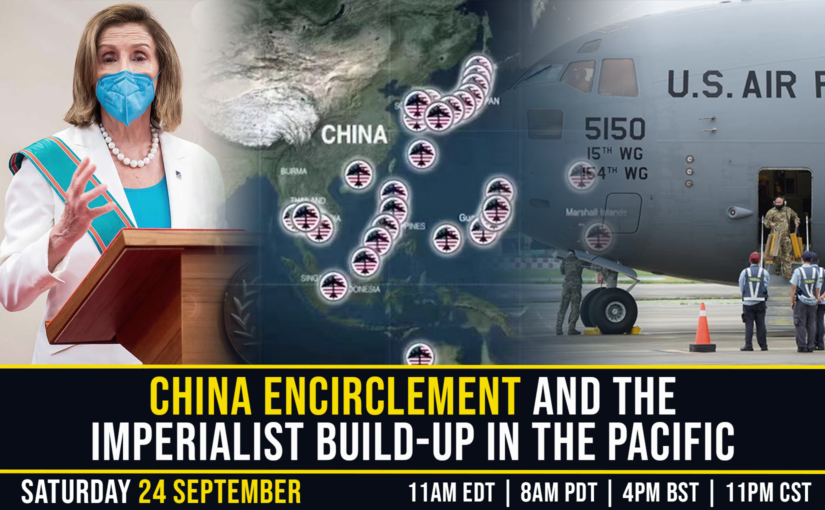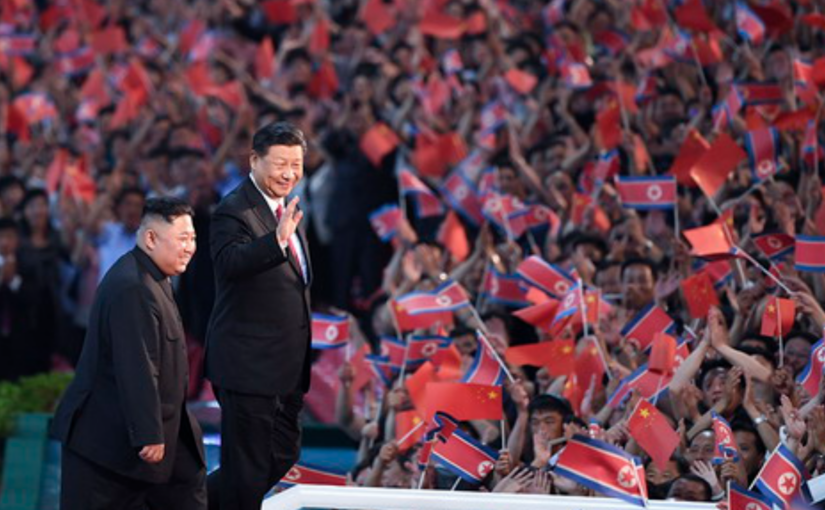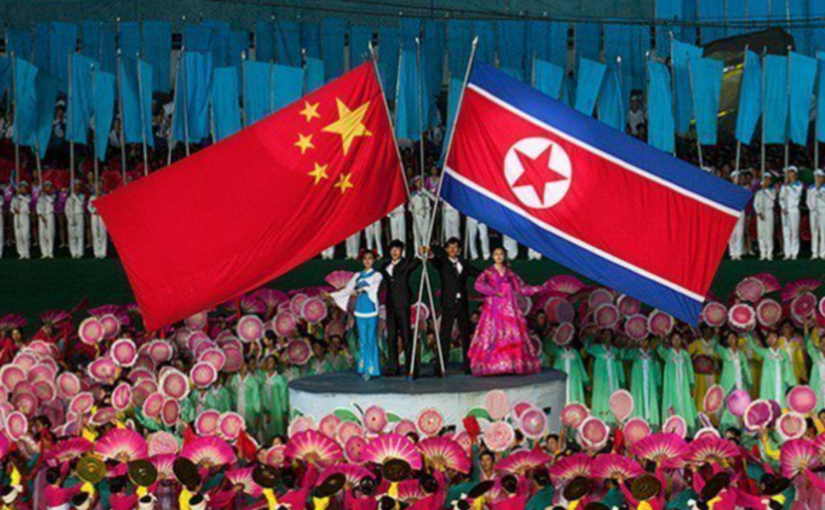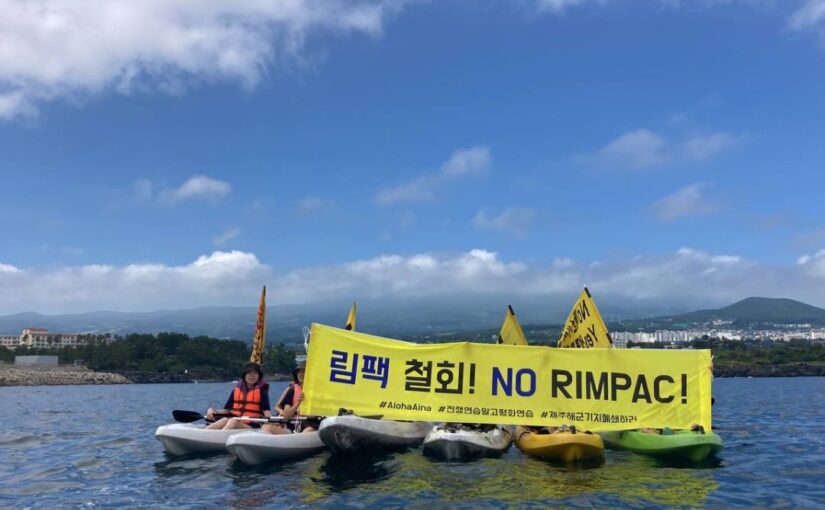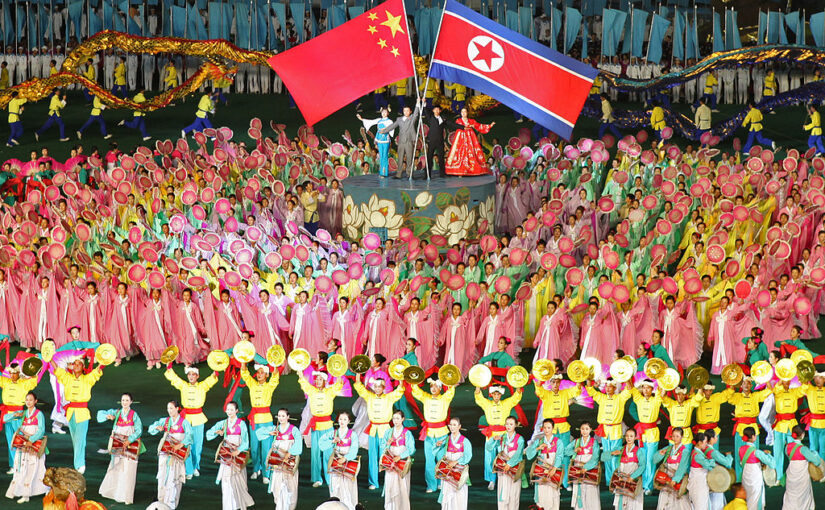The Democratic People’s Republic of Korea (DPRK) organized a number of grand celebrations to mark the 70th anniversary of the signing of the armistice agreement, on July 27 1953, that ended just over three years of bitter fighting in the Korean War. Known as the Fatherland Liberation War in the DPRK and as the War to Resist US Aggression and Aid Korea in China, July 27 is considered in both countries as a triumphant day when the two fledgling socialist states scored a historic victory over US imperialism and its satellite forces.
A high-level Chinese party and government delegation, led by Li Hongzhong, a member of the Political Bureau of the Central Committee of the Communist Party of China and Vice-Chairman of the Standing Committee of the National People’s Congress (NPC), attended the celebrations at the invitation of the Korean side, between July 26-30.
The only other foreign delegation to participate was led by Sergei Shoigu, Minister of Defense of the Russian Federation. The former Soviet Union provided crucial assistance to the Korean and Chinese peoples during the war, most notably through the deployment on active service in Korean skies of its air force fighter pilots.
These were the first foreign delegations to visit the DPRK since the country closed its borders as a preventive measure against the spread of the Covid-19 virus at the start of the pandemic.
Top leader of the DPRK, Kim Jong Un gave a reception for the Chinese delegation on July 28.
Repeatedly expressing gratitude to the respected Comrade Xi Jinping for having dispatched a party and government delegation to the significant celebrations of the victory common to the DPRK and China and sending his personal letter with best wishes, he extended heartfelt thanks to the Communist Party of China, the PRC government and all the Chinese people that helped the DPRK’s revolutionary war at the cost of their blood and have invariably supported the just cause of the WPK [Workers’ Party of Korea] and the people of the DPRK.
He said that the Korean people would always remember and praise the militant feats and historic contribution of the service personnel of the Chinese People’s Volunteers who provided the excellent tradition of winning victory in the staunch anti-imperialist revolutionary spirit and with the revolutionary unity while heroically fighting in the same trench with the Korean army in the most difficult period of the DPRK.
Being very rejoiced over the fact that the Chinese party and government have made world-startling achievements in the new course of comprehensively building a modern socialist country with Chinese characteristics and the international position of the PRC is growing higher with each passing day, he expressed conviction that the fraternal Chinese party and people would surely realize the Chinese nation’s dream of great prosperity under the wise leadership of Xi Jinping.
Earlier, Comrade Kim Jong Un had met the Chinese delegation just prior to a concert held in the early hours of July 27.
There, Li Hongzhong handed Kim Jong Un the personal letter from Xi Jinping, in which the Chinese leader pointed out that 70 years ago, the Chinese People’s Volunteers (CPV), together with the people and army of the DPRK, achieved a great victory in resisting US aggression and aiding Korea, and forged a great friendship bound by blood. No matter how the international situation may change, it is always the unswerving policy of the CPC and the Chinese government to maintain, consolidate and develop China-DPRK relations, Xi Jinping wrote.
Expressing his thanks, Kim Jong Un told Li Hongzhong that the significance of July 27, the war victory day common to the Korean and Chinese peoples, was further highlighted as they were present together to celebrate it. Noting that Xi Jinping dispatched a party and government delegation to the DPRK in the current crucial period, he said that it showed the general secretary’s will to attach great importance to the DPRK-China friendship.
Saying the Korean people will never forget the fact that the brave soldiers of the Chinese People’s Volunteers shed blood to bring about the war victory and their noble spirit and soul, though many years have passed and that generation has been replaced with a new one, he affirmed that the WPK and the DPRK government will as ever strive to further strengthen the friendship and solidarity with the fraternal Chinese people and always advance hand in hand with the Chinese people in the struggle for socialism.
Previously, on the day of their arrival, the Central Committee of the WPK and the government of the DPRK had invited the Chinese delegation to a welcome reception at which Kim Song Nam, head of the WPK’s international department, made a speech.
Referring to the fact that the CPV made a historic contribution to bringing about the war victory, an unprecedented event in history, through militant unity and comradely cooperation, he said that the Korean people would never forget the heroic feats and merits of the brave soldiers who recorded a brilliant page in the history of the great victory in the Fatherland Liberation War and the history of DPRK-China friendship.
The Korean people are rejoiced over the achievements made by the Chinese people in building a modern socialist state with Chinese characteristics in the new era, he said, expressing conviction that the Chinese nation’s dream of great prosperity will surely come true, thanks to the steadfast leadership of the Communist Party of China with General Secretary Xi Jinping as its core and the devoted efforts of the Chinese people rallied around the Party.
Replying, Li Hongzhong said that China is very rejoiced over the fact that the socialist cause of the DPRK has steadily gained momentum with each passing day through thorough implementation of the resolutions made at the 8th Congress of the WPK and the plenary meetings of the Party Central Committee. He hoped that the Korean people would continue to achieve fresh successes by promoting the cause of socialism under the leadership of the WPK headed by General Secretary Kim Jong Un.
During their stay, the Chinese delegation also attended the huge military parade held in Pyongyang’s Kim Il Sung Square, met with other senior leaders of the DPRK party and state, and visited the birthplace of the DPRK’s founding leader Kim Il Sung, the Victorious Fatherland Liberation War Museum, the Martyrs Cemetery of the Chinese People’s Volunteers, which includes the grave of Comrade Mao Zedong’s son, Mao Anying, and the Friendship Tower, which honors the fallen Chinese internationalist fighters.
In the days leading up to the anniversary, Kim Jong Un also visited the Chinese People’s Volunteers cemetery. The DPRK leader said that the noble soul and spirit of sons and daughters of the Chinese people who supported the Korean people in the sacred anti-imperialist, anti-US struggle with their heroic sacrifice, and made an important contribution to the war victory, are obviously recorded in history as a foundation and model of the DPRK-China friendship to be immortal along with the socialist ideal.
Noting that the hard-fought Fatherland Liberation War was a war of justice to defend their dignity, honor and sovereignty as well as the world peace and security and an acute political and military confrontation with the imperialist dominationist forces which was staged on behalf of the peace-loving forces and progressive humanity, he stressed that the great victory won by the peoples of the DPRK and China at the cost of their blood is invariably displaying its great vitality still now, century after century.
Also, at the end of June a remodeling of the interior of the Friendship Tower was unveiled. Speaking at the ceremony, the DPRK’s Minister of Urban Management, Im Kyong Jae, said that the militant unity and comradely cooperation between the DPRK and Chinese peoples, displayed in the joint struggle against the US-led imperialist allied forces, set a living example of internationalism, and the historic contributions made by the officers and men of the Chinese People’s Volunteers, who rendered assistance to the just cause of the Korean people at the cost of their lives will always remain in the hearts of the peoples of the two countries. He noted that Kim Jong Un personally initiated the work for remodeling the interior of the Friendship Tower on the occasion of the 70th anniversary of the war victory and gave detailed instructions on its layout, new art pieces and exhibits and guided the work for successfully completing the project.
Chinese Ambassador Wang Yajun expressed sincere thanks on behalf of the Chinese party and government to the Korean party and government and people over the fact that the interior of the Friendship Tower was excellently remodeled under the personal attention and guidance of General Secretary Kim Jong Un.
The Chinese party and government will remain unchanged in their firm stand to successfully defend, consolidate and develop the China-DPRK relations no matter how the international and regional situations may change, the ambassador said, adding that the Chinese side is willing to thoroughly adhere to the common understanding reached by the top leaders of the two parties and the two countries and thus provide the peoples of China and the DPRK with better happiness and make new and bigger contributions to the regional and global peace, stability and prosperity, together with the DPRK side.
In an article carried on China Daily, Liu Qiang, a prominent Chinese academic, wrote that fighting aggression and assisting the DPRK had been the right decision. He noted:”Some people have questioned China’s decision to aid the DPRK and resist US aggression, and have questioned whether the cost in lives was worth it. It is not difficult to answer these questions if we consider the situation at that time.
“Although it was at the request of the DPRK that China’s leadership decided to send the Chinese People’s Volunteers force to the peninsula, China also had to safeguard its own national security… As the US bombed border cities and towns on the border between China and the DPRK, it posed a threat to China’s national security, with some in the US calling for the war to be extended into China.
“Since the expansion of the war into China would have had severe consequences for the newly founded People’s Republic, Chairman Mao Zedong announced that China needed to restore peace on the Korean peninsula.”
He added: “Some people think the hostilities ended in a stalemate because after the signing of an armistice, the two sides returned to their respective pre-war positions separated by the 38th Parallel. But the fact that the ill-equipped Chinese People’s Volunteers force, who made huge sacrifice during the war, did not retreat in face of the US-led forces, which had the most advanced weapons and equipment, shows that the Chinese side was the victor in the war.”
Pointing out that, by fighting the war, China minimized the risk of a direct military attack on China at the height of the Cold War, Liu Qiang concluded:
“Some countries led by the US are hyping up the ‘China threat’ theory nowadays as part of their strategy to contain China. China is not a threat to any country, it pursues a defensive defense policy. However, should its sovereignty, national security and development interests be threatened, the spirit of the Chinese People’s Volunteers force will inspire the people to firmly defend the motherland.”
A similar tone was struck in an editorial carried by the Chinese newspaper Global Times, which noted that, prior to the 70th anniversary, “a US nuclear ballistic missile submarine visited Busan, South Korea, the first visit by a US submarine since 1981. Some US congressmen have openly claimed that this move is not only a warning to North Korea but also a deterrent against China.”
The paper observed that: “The Korean War is one of the most profound regional conflicts following World War II, and it is regarded as the ‘biggest defeat in the history of the US Army.'”
However, “some American political elites have drawn completely wrong lessons from the Korean War, using them to misguide the US’ foreign policy today, leading the country to proactively incite and provoke crises, and even wars.”
In this regard, the paper critiqued an article entitled ‘Why America forgets – and China remembers – the Korean War’, written by Mike Gallagher, Chairman of the recently established neo-McCarthyite “House Select Committee on the Strategic Competition Between the United States and the Chinese Communist Party”, and carried in the current issue of Foreign Affairs, the house journal of the US foreign policy establishment.
Global Times writes: “His arrogance and madness are comparable to that of Douglas MacArthur.” (MacArthur was the US commander in Korea, who even the US administration felt constrained to dismiss following his advocacy of the mass use of nuclear weapons not only in Korea, but also against the major cities of both China and the Soviet Union.)
Global Times issued a serious warning to the United States, writing:
“The US should never underestimate China’s determination and ability to defend its homeland. Disregarding these… lessons happens to be the prominent characteristic of current American hegemonism. The Korean War inflicted a painful price on the US, but if the US fails to learn from it, it will make even greater mistakes in the future.”
Before China decided to resist the US aggression and aid North Korea during the Korean War, it had repeatedly sent stern warnings that if US forces crossed the 38th parallel China would not sit idle. However, the US did not take it seriously, thinking that China was only making empty threats and would not take action. As a result, they were caught off guard when they encountered the Chinese People’s Volunteers Army on the battlefield. Today, a similar major misjudgment toward China is occurring in Washington. The biggest difference between now and the Korean War era is that China’s strength has greatly increased. The consequences of infringing upon China’s security interests and national sovereignty will undoubtedly be much more severe… it must be clear that if there is another strategic misjudgment this time, the price it will pay will surely be much higher than 70 years ago.”
The following articles were originally carried on the websites of the Xinhua News Agency, the Korean Central News Agency (KCNA), China Daily and Global Times.
